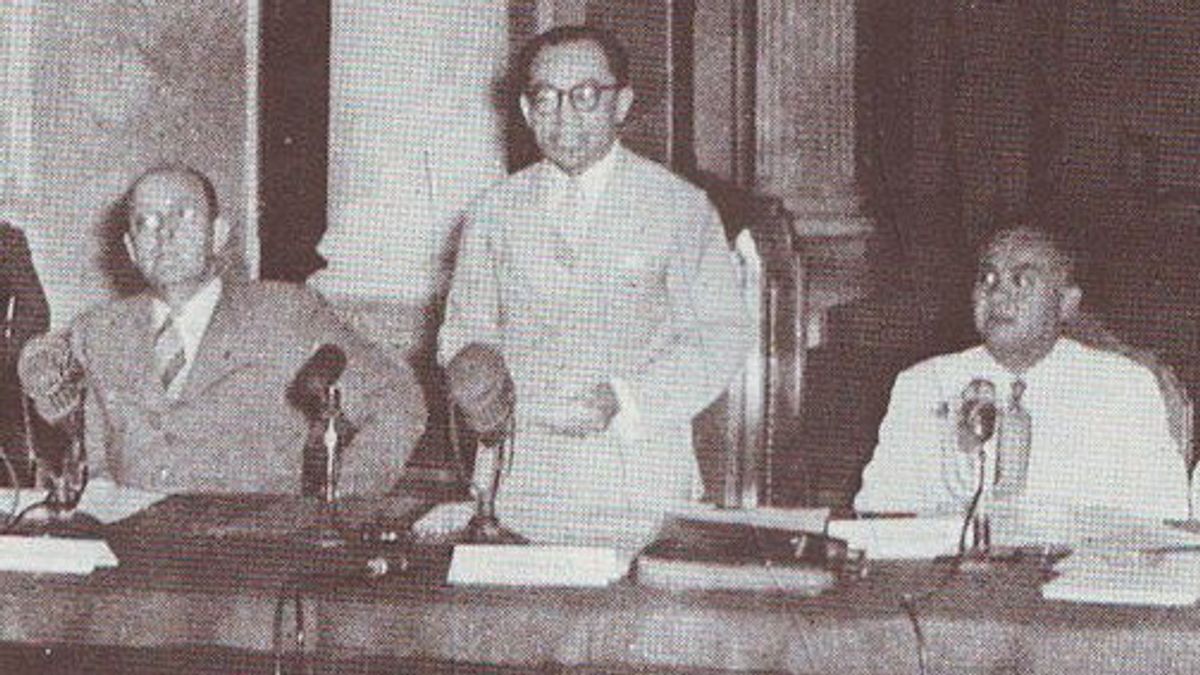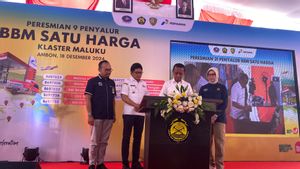JAKARTA - Mohammad Hatta is a true fighter. Just like Soekarno, Hatta could not be silenced. The Dutch had expelled Hatta to Boven Digoel, Papua. From there, Hatta's resistance continued.
Hatta did not fill the pulpit of political speeches. But a series of his writings often 'shake up' Dutch power in the archipelago. The Dutch also stemmed all of Hatta's political activities. From prison to exile.
Hatta was exiled to Boven Digoel, Papua, an area often called 'Siberia of the Dutch East Indies.' After returning from the Netherlands in 1932, Bung Hatta's emotions to fight for Indonesian independence overflowed.
Bung Hatta not only formed the Indonesian National Education Party (PNI Baru) with Sutan Sjahrir. The resistance he did through a series of writings in the People's Daulat magazine made the Dutch angry.
His movements were monitored. Moreover, Hatta's writings often nudged Dutch colonialism which impoverished the Indonesian people. Especially, through the topic of economics and the concept of nationalism which is sovereign by the people.
Furthermore. Every time Hatta stepped into various regions in the archipelago, he also actively gave a series of political courses. The course is given free of charge to those who are fighting for the liberation of the nation.
Hatta knew that his political activities worried the Governor-General of the Dutch East Indies, Bonifacius Cornelis de Jonge (1931-1936). De Jonge classifies Hatta's activities as more radical and dangerous than Soekarno's movement.

The Dutch also chose to throw Hatta into prison. Slamet Muljana in the book National Awareness: From Colonialism to Independence Volume I released in 2008 tells of the arrest of Hatta.
"On February 26, 1934, the government suddenly arrested several members of the New PNI, namely Hatta, Sjahrir, Maskun, Burhanuddin, Marwoto, and Bondan."
"While waiting for a decision from the government, Hatta was held in Glodok prison, while Sjahrir and five other people were in the Cipinang detention house. In Glodok prison, Hatta still had time to finish his book, Economic Crisis and Capitalism," he added.
Ever since the PNI Baru leadership was imprisoned, the PNI office has not escaped the scrutiny of the colonial government. All the letters, papers, and several magazines of Daulat Rakyat containing Hatta's writings were brought by the Dutch police.
During that time, Hatta himself first experienced the prison room of the police station in the Gambir Field area - now the National Monument area. Hatta was told to sleep on the floor, without even being given a mat.
After that, Hatta was just transferred to the Glodok Prison. During the nine months he was in the Glodok Prison, Hatta received news that he would be exiled to Boven Digoel, Papua, on November 16, 1934.
Hatta and six PNI Baru officials, including Sutan Sjahrir, were transported to Boven Digoel. Hatta was asked to get ready to go to Tanjung Priok Port in prison clothes. His departure took a long time and was relayed.
The long journey started from Tanjung Priok. Hatta was taken by ship Melchior Treub to Surabaya and Ujung Pandang. From Ujung Pandang he took another, smaller ship to Ambon.
From Ambon Hatta took a smaller ship called the Albatros to Boven Digoel. They arrived at Boven Digoel on January 28, 1935. This area is located deep in the southern interior of Papua, on the banks of the Digul River, which is about 600 km from the sea.
“On January 28, 1935 at noon we arrived at Tanah Merah. After finishing the administrative affairs from the authorities, we were received by the admissions committee whose members consisted of people who came first. Wedana and the village head of Tanah Merah village took us to the house that had been prepared for me."
"Only I got a house that was finished. The house was a former office. So, the element of supervision against me still applies even though I live in the middle of the jungle," said Bung Hatta as quoted by Rosihan Anwar in the book Memories of Sjahrir (2013) .
Hatta Boven Digoel's Life
The exile of Boven Digoel was indeed created by the Dutch government to quell the resistance of the intellectuals who resisted. Boven Digoel is known as 'hell'. The Dutch call it a 'graveyard'.
The image was formed because Boven Digoel is notoriously dangerous. Besides being surrounded by wilderness, Boven Digoel is also inhabited by many crocodiles. And the most famous is the malaria mosquito. Hatta had been exposed to malaria twice.
“Hatta himself admitted that he had contracted malaria twice while in Digoel. To avoid the disease they take quinine pills. But this also has a negative impact because many of them are hearing impaired and suffer from irritability. Hatta was also affected by the disease," wrote Anwar Abbas in the book Bung Hatta and Islamic Economics (2010).
While in Papua, Hatta lived in a dirt-floored house with two rooms. At first, Hatta planned to live with Sjahrir. However, Sjahrir first lived with his friends.

The vacancy was filled by Burhanuddin. Seven months Hatta and Burhanuddin under the same roof, until Burhanuddin's wife came. The two of them share the housework, from cooking rice, washing dishes, to sweeping the yard.
Hatta continued his political agenda. He also refused to cooperate with the Dutch. In exile Hatta remained productive writing for newspapers in Batavia and The Hague (Netherlands).
Hatta was rewarded for meeting his daily needs in the land of internment. In addition, Hatta began to study Greek philosophy and actively taught the prisoners at Boven Digoel various subjects.
"… Philosophy is useful for enlightenment of thoughts and determination of the heart. It brings us into the realm of the mind, the realm of mere conscience. And therefore frees us from the influence of place and time. In the association of life so oppressive to the spiritual, as in exile Digul. Feelings need to be secure. Those who live in the world of mind can free themselves from the distractions of everyday life, "said Bung Hatta in the book Natural Mind Greece (1983).
Regarding his teaching duties, Hatta held courses with three core subjects: philosophy, economics, and history. Each resident of Boven Digoel can choose which subject he likes, as long as there are no more than three subjects per person at a time.
After leaving Boven, Digoel Hatta was then transferred to Banda Neira on February 11, 1936. Those who had studied with Bung Hatta felt lost. The good news is that the prisoners then got access to quality literature thanks to Bung Hatta's presence in Tanah Merah.
“I got enough reading, both books and newspapers, especially when Hatta and Sjahrir were still beside us. Hatta and Sjahrir received newspapers from the Netherlands. Once a month the newspapers piled up. Het Volksblad, De Groene Amsterdammer and Nieuwe Rotterdamshe Courant are Dutch newspapers who are loyal to visit Tanah Merah,” concluded the former Boven Digoel prisoner, Mohamad Bondan in the book Memoirs of an Ex-Digulis: The Totality of a Struggle (2011).
*Read other information about NUSANTARA HISTORY or read other interesting articles from Detha Arya Tifada.
Other BERNASThe English, Chinese, Japanese, Arabic, and French versions are automatically generated by the AI. So there may still be inaccuracies in translating, please always see Indonesian as our main language. (system supported by DigitalSiber.id)









